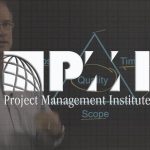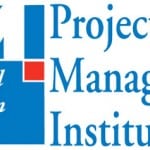PMP: Vocabulary – The Intersection of Hard and Soft Skills
PMP: Vocabulary – The Intersection of Hard and Soft Skills
“One forgets words as one forgets names. One’s vocabulary needs constant fertilizing or it will die.”
Evelyn Waugh
Looking for blog topic ideas when two recent conversations collided and provided this topic.
The words that we use set our goals, and put projects – CHANGE – in motion. Select the wrong words and the goal escapes us. Use clear, concise words and the goal is clear, even if the path is unknown. This concept is true whether we are setting personal goals, or assisting stakeholders to establish project goals.
In our Project Management Professional Certification course, I teach candidates to focus on customer needs. To effectively peel back the surface of a request often stated as ‘wants’ to get to the core need. To create objectives from subjective statements.
When we use the wrong vocabulary, we confuse ourselves and others. Meaning disappears. Requests for assistance result in limited (or no action), or even unintended resistance.
During a recent conversation, a friend suggested that they wanted to achieve and maintain inertia. I heard what they said, and I thought I understood their intent, though as the conversation continued my brain became befuddled by their use of vocabulary. Inertia is a state of immobility. Given their workload, and alpha personality, my immediate interpretation was their desire to find respite. Perhaps to enjoy summer activities with family. To laze at the beach. To attend a Jimmy Buffett concert. As the conversation continued, I came to realize that they were speaking about overcoming inertia – breaking the stalemate holding them in place rather than moving toward a goal. The words associated with their request and their desires where in direct opposition.
I offered some advice. Pointed them toward a few of my motivational mentors and moved on. I believed that I had helped my friend further toward their goal. Until a second conversation slapped me mildly upside the head (metaphorically speaking).
While undergoing therapy for a recent soft tissue injury, I received some semi-solicited metaphysical queries and advice. $6,000 in western medicine co-pays and no resolution led me to an eastern medicine practitioner and a working solution. A solution set that uses a different vocabulary than western medicine. When someone is helping you, it is best to listen and to process the input. They asked about my 2016 goals. Given the scenario, I stated “health, wealth, and creativity”, which are the key words for more specific agendas. They asked for clarification and specifics. The approach had my attention – project management application has that effect on me – at least relative to helping me with my health goals.
They shifted the topic to wealth, and I responded with another keyword, “abundance”. Their response was “abundance of what? Money? Stuff? People? Work? Projects? Stress?”. Wow! They had me. We get what we ask for and what we set our goals upon. I had certainly been dealing with an abundance of ‘stuff’. The wise practitioner suggested I refine my goals for a better outcome.
Choose the correct and concise words.
I looked up ‘abundance’. A plentiful or over sufficient quantity or supply. Affluence and wealth also apply, though whoever has been listening to my goals (prayers, affirmations, etc.) may have been hearing a different meaning. I have since refined my goals.
Jim Rohn lessons continue to mentor me. Amongst them “4 Tips for Setting Powerful Goals”.
- Evaluate and reflect
- Define your dreams and goals
- Make your goals S.M.A.R.T.
- Have accountability
One frequently cited project management tool is S.M.A.R.T. Specific, measurable, attainable, realistic, and timely. Or if you prefer a modern interpretation of the mnemonic, finish the list with achievable, relevant and time-bound.
Specific – the key concept for this blog – is about your vocabulary. The term in the mnemonic I have the most difficulty clarifying to students other than through the use of synonyms. Specific: precise, special, concise, particular, proper, unique. Yet, how do we apply specific as a concept? More on that in a moment.
Per Feigenbaum, Demming, and others, if you measure your efforts toward the goal you will more successfully reach it. Find a metric – a measurement system – and apply a starting number as a goal, then continuously improve your efforts using the system to refine your approach toward the goal.
Attainable or achievable. If we see the goal as attainable or achievable, either because we see the path or we find examples set by others, then we have a means to break the barriers that prevent us from adopting change. If we see neither the path nor examples, then we break the effort into smaller, achievable steps. (Watch my video about Agile methodologies for a better understanding of the project life cycle and possible approaches to planning projects with less readily visible goals.)
Realistic or relevant. I prefer the words believable and contextual. Can the goal be achieved? Do the steps help you toward your ultimate goal? Paint a picture that fits the science, sociology, and environment within which you are attempting to achieve the goal. Much like a puzzle, if the vision or the picture is presented first, snapping the pieces together is less daunting.
Timely or time-bound. The concept behind a project includes a temporary effort and associated state. Humans can endure almost any effort within a fixed timeframe. Setting a timeframe and sticking to the schedule enables the mind and the process to overcome even large barriers to change.
Back to specific. The vocabulary that we utilize. If the words are equally clear to the customer, to the team, and to you, then everyone is pulling in the same direction toward the goal. Specific is now more apparently about the words that we use, and how they are interpreted by the entire stakeholder audience.
The words we share are clearly the intersection between setting goals and achieving support.
Use that thesaurus and look up the words you are using. Provide clarification and meaning for yourself and for others. Specificity includes assuring that everyone is on the same page.
So I looked up inertia. noun uncaring attitude, lack of interest. Synonyms: indifference, insensitivity, lethargy, aloofness, coldness, coolness, detachment, disinterest, dispassion, disregard, dullness, emotionlessness, heedlessness, insensibility, insouciance, lassitude, listlessness, passiveness, passivity, stoicism, unconcern, unresponsiveness, half-heartedness. He absolutely did not want to achieve and maintain any of those states. None of these words match my friend or their goals.
I felt compelled to share my insight. My friend changed the wording of their goal, and shared it with his core support team. He called me back a few days later and shared that help was appearing from multiple venues once everyone understood the goal and the barriers.
Progress.
Have you checked the wording of your goals? The words being used in your project specifications? Are they clear and understood by the customer and the team?
Keep refining your words – your specifications – until they have clear meaning for you and are understandable by those from whom you desire support.
I look forward to seeing you in the classroom, or online!
Steven Fullmer
Interface Technical Training Staff Instructor
Steve teaches PMP: Project Management Fundamentals and Professional Certification, Windows 10, and CompTIA classes in Phoenix, Arizona.
“Right!”
“Right!”
“You can get there!”
“I can get there!”
“You’re a natural at counting to two!”
“I’m a nat’ral at counting to two!”
“If you can count to two, you can count to anything!”
“If I can count to two, I can count to anything!”
“And then the world is your mollusc!”
“My mollusc! What’s a mollusc?”
Terry Pratchett, Men at Arms: The Play
Terry Pratchett’s Discworld comic fantasy series satirize political, cultural and scientific issues often by applying parodies to classic literature. Vocabulary is critical to the message.
You May Also Like
A Simple Introduction to Cisco CML2
0 3896 0Mark Jacob, Cisco Instructor, presents an introduction to Cisco Modeling Labs 2.0 or CML2.0, an upgrade to Cisco’s VIRL Personal Edition. Mark demonstrates Terminal Emulator access to console, as well as console access from within the CML2.0 product. Hello, I’m Mark Jacob, a Cisco Instructor and Network Instructor at Interface Technical Training. I’ve been using … Continue reading A Simple Introduction to Cisco CML2
Cable Testers and How to Use them in Network Environments
0 727 1This content is from our CompTIA Network + Video Certification Training Course. Start training today! In this video, CompTIA Network + instructor Rick Trader demonstrates how to use cable testers in network environments. Let’s look at some tools that we can use to test our different cables in our environment. Cable Testers Properly Wired Connectivity … Continue reading Cable Testers and How to Use them in Network Environments
Data Models in Business Analysis
0 200 0This video is from our PMI-PBA Business Analysis for IT Analysts and Project Managers (PMI-PBA)® Certification now available at Interface Technical Training. Also see Steve’s PMP Project Management Certification Course: Project Management Professional (PMP®) Certification Video Training PMBOK® 6th Edition Video Transcription: Data Models are part of the elicitation analysis in PMI-PBA. This is the way … Continue reading Data Models in Business Analysis




